The history of the holiday on March 8 and features of the celebration

The holiday of March 8, judging by numerous social surveys, is associated with Russians with flowers, sweets and compliments. And also with the day off, on which it is customary for men to take all the household load on themselves. Every second woman waits for flowers on this day, and only a small part of the respondents do not celebrate this holiday in principle. Of course, over more than 100 years of existence of March 8 as a special date in the calendar, the original meaning has changed. Moreover, the meaning has become almost diametrically opposite. This can be seen if you delve a little into history.
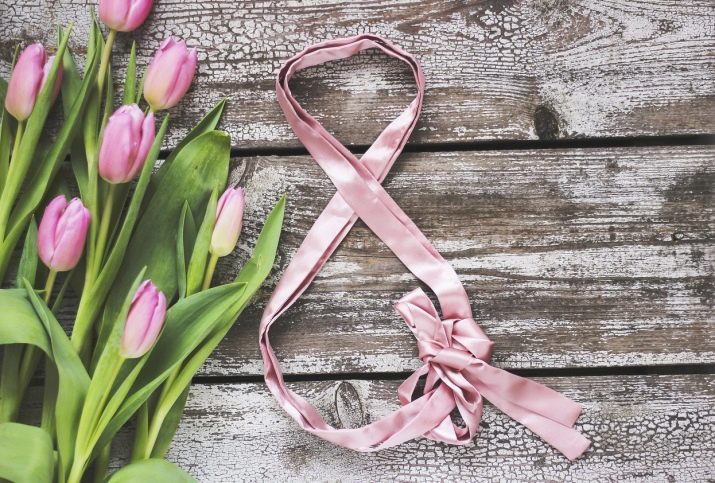
The history of the holiday
It's worth starting with the fact that March 8 was not a holiday, if by the latter we mean a solemn day, fun and gifts. This is how he became at the end of the 60s of the last century, and these positions have strengthened significantly over the past decades. In fact, March 8 turned into a golden day for the flower business and a great marketing product. The names of Rosa Luxemburg and Clara Zetkin are mentioned in passing, and not every woman celebrating March 8 will answer who these women were and why the holiday is associated with them.

In Russia
Ironically the main women's day of the Land of Soviets was destined to be February 23rd. On this day (only according to the old style) in 1917 there was a strike of textile workers, which continued with a march demanding gender equality. In fact, this event became, if not a trigger, then clearly one of the triggers of the February Revolution. Then, when the calendar changed, the day of the landmark strike turned into March 8th.
The Spring Festival, as it turns out, was not such at all. It was a protest movement caused by time.Women wanted equality, the right to vote, and labor guarantees. The problem had been brewing for a long time, but until 1917 in Russia there were no such massive demands, there were no columns of suffragists on the street (this process began earlier in the world). But the fire of the revolution was already flaring up, engulfing all fronts, and women could no longer stand aside.
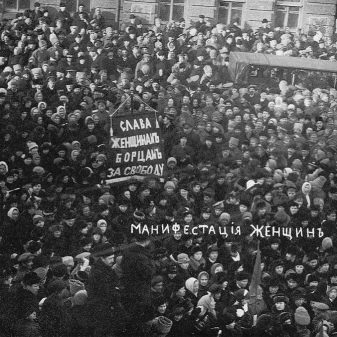
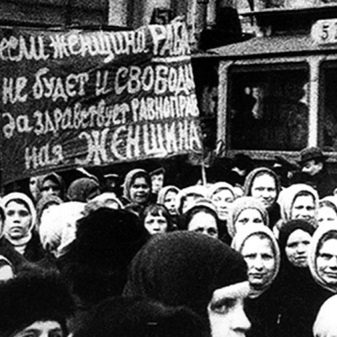
The February activity of women, their assertiveness, the emergence of bold slogans (for example, "The place of women in the Constituent Assembly") led to a forced reaction of the Provisional Government. Under the onslaught of popular unrest, it has equalized women and men in voting rights.
It is interesting that in Russia this happened even earlier than in Britain and France.
And when the Soviets came to power, women acquired the right to a humane eight-hour working day, pregnancy benefits and other previously practically unthinkable social guarantees. And these actions by the authorities gradually made the protest movement meaningless. So, the day, important for all women, gradually turned into a holiday more like Mother's Day.
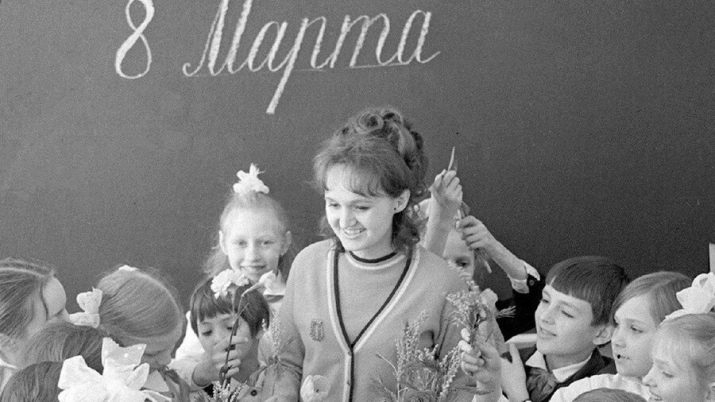
Today, March 8 is considered International Women's Day, and the story of its creation comes to the fore again... Every year international organizations choose a topical topic on the agenda and position this day as a reminder of the importance of respecting rights, of the fight against those vulnerable personal, social, professional moments that women around the world face.
In Russia, on this day, various communities of feminists are trying to hold actions and other events reminiscent of the historical background of the holiday.
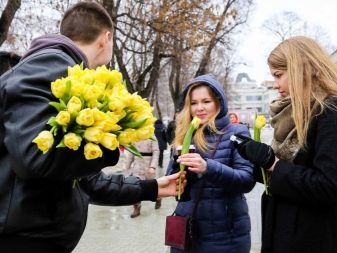
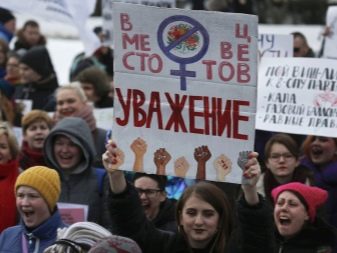
Abroad
The date itself appeared thanks to the socialist movement.... In February 1909, New York women took to the streets and demanded equality of wages and suffrage for themselves. A year later, at a women's conference in Copenhagen, Clara Zetkin and Rosa Luxemburg felt that a special day was needed - a holiday promoting equality and suffrage ideas.
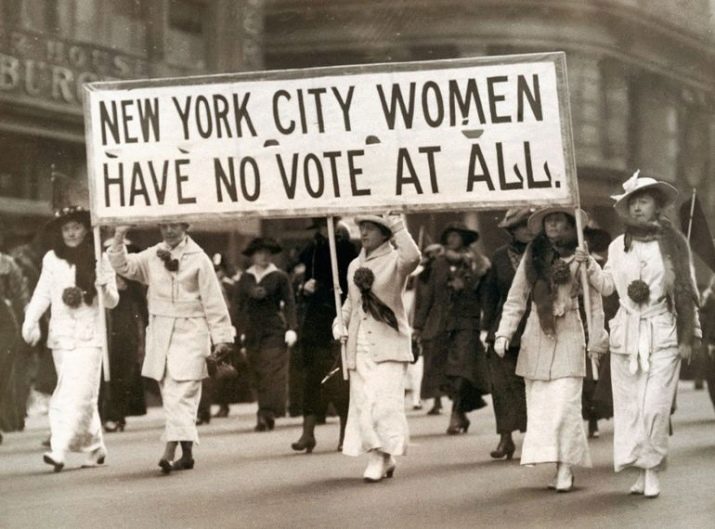
Clara Zetkin - a convinced German communist (it is interesting that her husband, a Russian émigré Osip Zetkin, introduced her to this movement). For a long time, Clara lived in exile, in France to a greater extent. There she became the leading ideologue of the international women's movement.
At the time of the meeting with activists from the States, Zetkin was already the main one on women's rights in Europe - both ideologically and in terms of popularity. And Clara did not give up her struggle until the end of her life. Under the Nazi regime, Zetkin found herself in a new exile. She died in the Soviet Union and was buried at the Kremlin wall.
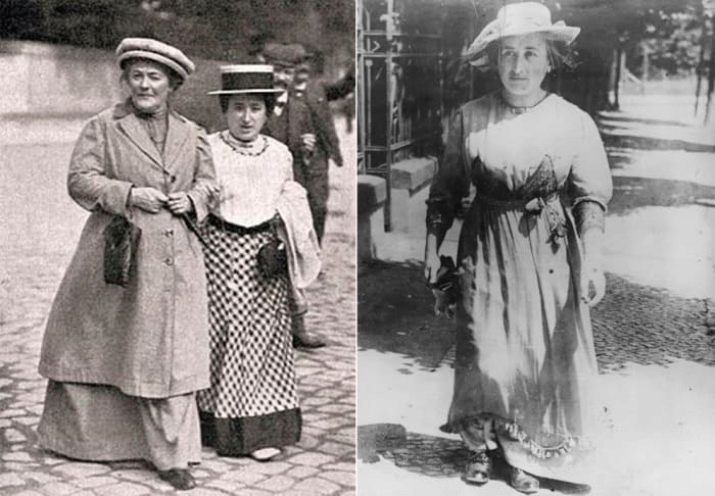
The date of the holiday, initiated by Western activists, shifted from time to time (but within one month). The date of March 8 was fixed at a conference in Copenhagen. For the first time in 1914, this holiday was simultaneously celebrated in 8 countries at once, including the USA, Switzerland, Britain.
Since 1975, the UN has recognized March 8 as International Women's Day. She invited countries to designate any day of the year as the Day of the Struggle for Women's Rights. And many countries have decided that this day will be the traditional March 8th. Today people try not only to get acquainted with the origin of the holiday, to find out after whom the streets of their cities are named (the same Zetkin and Luxemburg), but also to take part in the practical implementation of the ideas of the holiday.
In fact, on this day it is not so correct to give flowers and to be on duty in the kitchen, as to participate in activities for the protection of women's rights.
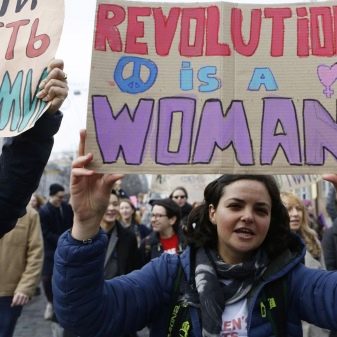

Despite that huge leap in the feminist movement that took place over a century ago, many problems have not lost their importance. Even the inequality in the salaries of workers of different genders in the same positions is a marker of the fact that feminism was not invented, it has matured and has not exhausted itself. Many questions arise about the attitude of Orthodox Christians and Muslims, people of other confessions to the holiday. I must say that there is no clear, concise answer here. The believer decides for himself how he will relate to the holiday... If he falls on Great Lent, then the restrictions on fasting will not be canceled for that day either.
But to say that today the position of the church is to ignore and have a negative attitude towards the initially communist holiday is impossible. If you want to congratulate your loved ones, take care of them, give them love, this does not contradict Christian positions. Representatives of other confessions can discuss this issue with their spiritual teacher.

When did you start celebrating?
Even historians do not really know when exactly the demonstrations turned into candy-bouquet festivities. It is obvious that the Soviet regime, which gave women much of what they demanded, removed the need for new protests. And when they could mature again, yes with the same revolutionary force, the screws were already “tightened” in the state.
For example, in the 30s of the last century, the so-called women's departments were abolished, and all the necessary campaigning came to naught. The topic of social elevators turned out to be closed for Soviet women for many decades.
The postcards, issued by March 8, quickly lost their revolutionary agitational expressiveness, the theme for them was the glorification of female beauty and maternal feat.
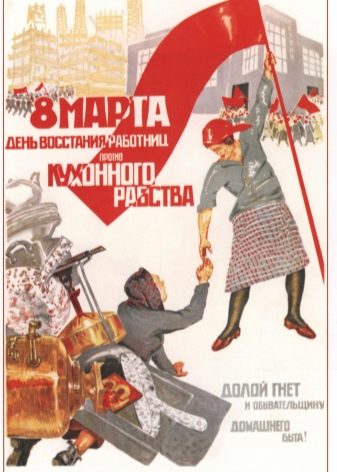
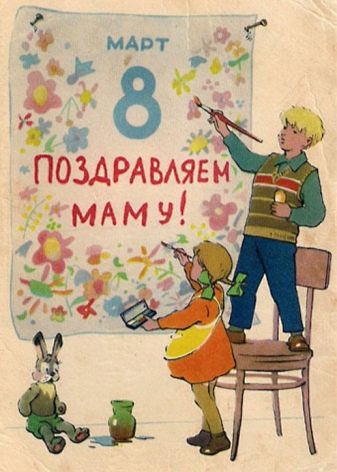
March 8 became a day off in 1966, during the Brezhnev era. There is no need to talk about the active idea of a date, the appearance of which was conquered by women. The holiday has become gender-oriented, but women’s rights, freedoms, equality are spoken about only in a completely different way.
On this day, they began to congratulate the woman not on her right to equality, but on her natural physical weakness, if I may say so, with fragility and with the fact that it was she who had to take on the basis of household work and the main concerns of children. Even at corporate parties dedicated to March 8, even today they do not talk about equality, partnership, rights, but the stereotypically feminine features of the heroines of the celebration are noted, they are glorified. Children arrange matinees in kindergartens and schools, the emergence of a huge industry of gifts for this day almost destroyed the original idea of the holiday.
This is called ideological disorientation, loss of meaning.

Features of the celebration
It is believed that only socialist countries celebrate March 8th. This is not entirely true, although the opinion is understandable. In China the holiday does exist, but this is not a day off, but only a shorter working day for women. In many countries (India, Afghanistan, etc.) the day is marked by protest actions, and men also join them.
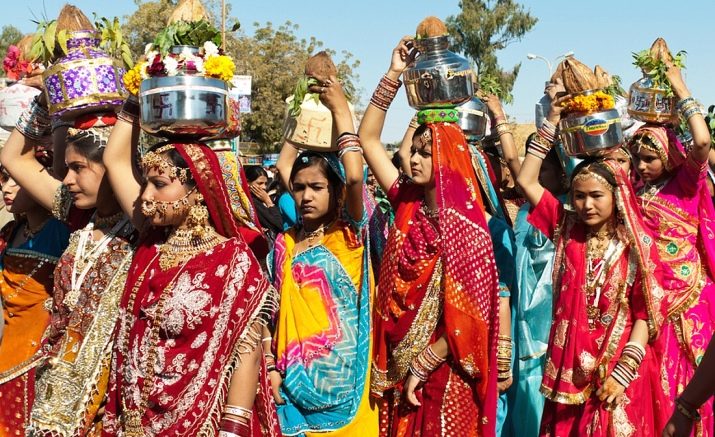
In the new millennium, the holiday takes on two directions. The first is protest, feminist, legal, the second is related to pop culture. This interpretation of the holiday is more and more closely related to social networks: various flash mobs and challenges are aimed at popularizing the holiday as a women's day to take care of oneself. An example of this is the large-scale reaction of social media users to the hashtag #DearMe, where women from all over the world write letters to themselves. Himself - young, at the age of a teenager. This is taking on unimaginable coverage.

On Youtube, journalists and bloggers post films, interviews that are associated not with the holiday, but with the date and its historical message... If on March 8 TV programs are still shown akin to "Women's Stories" and the films "Moscow Does Not Believe in Tears" and "Girls" are repeated, on the Internet the holiday resonates with the current agenda. Films about domestic violence, about women of non-stereotyped professions, about human rights defenders and their deeds - these are the main content of the day. And this also forms a new attitude towards the holiday.


Many modern women ask not to congratulate them on this day with the usual colors and cosmetics, but decide to send a feasible amount to the accounts of funds to combat violence and women's discrimination. And if a few years ago such behavior was not widespread, today it is progressing. Even the commercial component of the holiday is forced to adapt to the new public demand.
For example, companies that offer their product, positioned as the best women's gift on March 8, try to socially accompany the offer. They promise that a percentage of the proceeds will go to the same Fund for the Fight against Domestic Violence or the Fund to help women undergoing rehabilitation after breast cancer, etc.
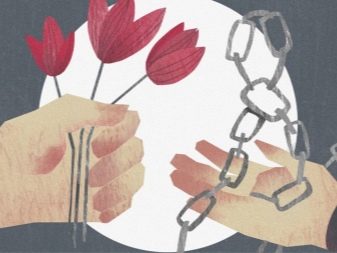
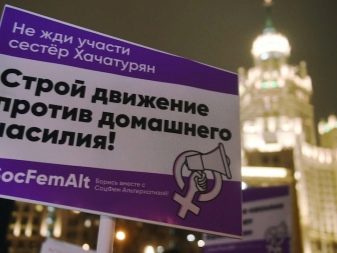
Interesting Facts
And now only the facts - what happened on March 8, and what characterizes this holiday from different sides.
- The famous mimosa - the main symbol of the Soviet March 8 - it is correct to call it a silver acacia. True mimosa has a lilac color, its inflorescences are much more modest than those sold on March 8 at every corner.

- In Portugal, women decided to completely recapture this day from men. They never spend it with them. This is the official day of bachelorette parties, with treats, funny contests, etc.

- Valentin Aleksandrov wrote a report to Brezhnev for the 20th anniversary of the Victory. On the agenda was the question of the feat of Soviet women during the war. Aleksandrov's wife said that what was written and remains on paper, it is better to somehow really simplify the life of a Soviet woman. So the idea was born to make this day a weekend. They hesitated for a long time - they were afraid of a negative reaction from the State Planning Commission, but nothing happened. So, since 1966, March 8 has become a day off.

- The analogue of the modern March 8 in ancient Rome was the holiday of free women... It even sounds beautiful and fresh. Women dressed beautifully, received gifts and compliments, slaves received a day off that day.
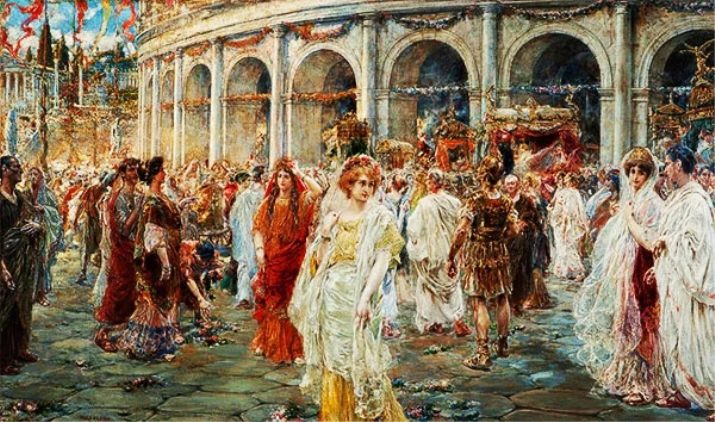
- Japan does not celebrate Equality Day, but the entire March is dedicated to women in this country, for example, the traditional Puppet Festival is held on March 3. Dressed up girls prepare sweets, hold puppet shows and receive gifts.

- According to polls, 55% of men flowers are given to women on this day, jewelry accounts for 7%.

- March 8 is a sad day for everyone who was hooked on the story of the dog Hachiko... On this day he died.

- March 8 - name day only for men, not a single female name falls on this day. By the way, among famous people born on March 8, the overwhelming majority are men. For example, actor Andrei Mironov, beloved by more than one generation of women.

- Among the countries celebrating March 8 are Vietnam, Serbia, Uganda, Croatia, Latvia.



- In 1910, on March 8, the French pilot Elise de Laroche received the title of the first female pilot. with the legal right to fly an airplane.

Everyone has their own attitude to the holiday. To refuse flowers or still celebrate this day is traditionally an individual decision. But it is obvious that it is unreasonable to forget the origins and devalue the efforts of those thanks to whom this day appeared.






Class! I am looking for an essay on the topic, there is so much "water" around. Write more about the history of the holidays, traditions. Everything is very readable, meaningful, easy to remember, thank you.
It is also celebrated in Cuba, and not just for show. Celebrate in a revolutionary spirit, because they remember that the revolution is directly related to women)
Super! Class!
Sorry for the dog.